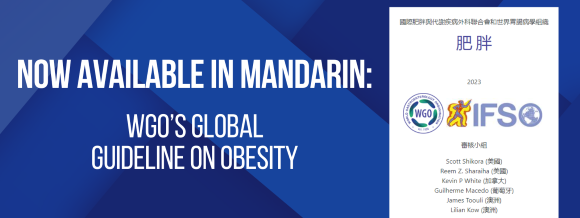

GI NEWS AROUND THE WORLD
P-CAB versus PPI in the eradication of Helicobacter pylori: A systematic review and network meta-analysis
Therapeutic Advances in Gastroenterology
This study aims to compare the effectiveness and safety of potassium-competitive acid blockers (P-CABs) and proton pump inhibitors in eradicating Helicobacter pylori and compare the eradication rate and adverse reactions of vonoprazan-based and tegoprazan-based regimens to explore the efficacy and safety of different Hp eradication strategies.
read more
A comprehensive evaluation of serum circCSPP1 as a novel diagnostic and prognostic biomarker for gastric cancer
Clinics and Research in Hepatology and Gastroenterology via ScienceDirect
Gastric cancer has high incidence and mortality due to its low early screening efficiency. Circular RNAs (CircRNAs) are a new class of non-coding RNAs, which is closely related to GC. Nevertheless, the clinical application value of circRNAs in GC are largely unknown. Therefore, we studied the role of a novel circRNA named circCSPP1 in patients with GC.
read more
Complex decision-making for gastroesophageal reflux in children with neurologic impairment
Hospital Pediatrics
GERD impacts children with neurologic impairment, but distinguishing it from other conditions is tough. The 2017 guidelines suggest proton pump inhibitors, diet changes and diagnostic testing. For severe GERD, gastrojejunal tube feeding or surgery may be considered. Canadian doctors' practices were surveyed regarding GERD management.
read more
Bariatric surgery tied to higher short-term risk for venous thromboembolism
HealthDay via Medical Xpress
Recent research indicates that while bariatric surgery raises the risk of venous thromboembolism shortly after the procedure, it significantly reduces the risk over the long term. This dual effect highlights the complex balance between immediate risks and lasting benefits.
read more
Benefit and harm of aspirin on mortality from gastrointestinal cancers versus bleeding in helicobacter pylori-eradicated patients
Clinical Gastroenterology and Hepatology via ScienceDirect
The researchers investigated the benefit-risk profile of aspirin on mortality reduction from chemoprevention of gastrointestinal cancer versus excess mortality from bleeding among Helicobacter pylori (HP)-eradicated patients, and its interaction with proton pump inhibitors.
read more
WGO NEWS


EVENTS CALENDAR
EASL Congress 2024
When: June 5, 2024 - June 8, 2024
Location: Milan, Italy
Organizer(s): EASL
Learn More
83rd Congress of the Spanish Society of Digestive Pathology
When: June 13, 2024 - June 15, 2024
Location: Valencia, Spain
Organizer(s): ISociedad Española de Patología Digestiva
Learn More